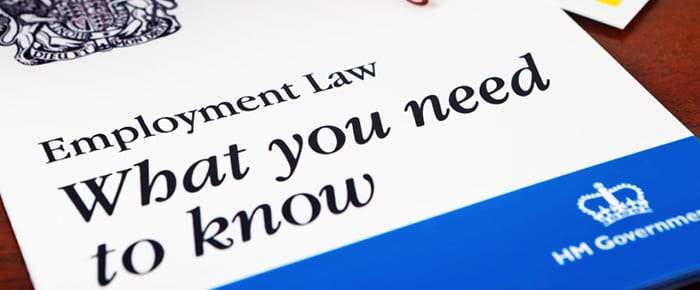The ‘Good Work Plan’ was published on 17 December 2018 and contains a number of small, discreet changes to workplace rights. Some aspects have already been implemented but most are awaiting further government action.
To help UK Employers prepare, we summarise below the key aspects of the Good Work Plan that will come into effect from 6 April 2020.
6 April 2020: The Employment Rights (Employment Particulars and Paid Annual Leave) (Amendment) Regulations 2018 (SI 2018/1378) come into force. These regulations amend the Employment Rights Act 1996 to provide that a written statement of terms must be given on or before the first day of employment, rather than within two months of employment starting. The regulations also add to the information that must be given in the written statement to include:
- the days of the week the worker is required to work, whether the working hours may be variable and how any variation will be determined;
- any paid leave to which the worker is entitled;
- details of all remuneration and benefits;
- any probationary period; and
- any training entitlement provided by the employer, including whether any training is mandatory and/or must be paid for by the worker.
In addition, they amend regulation 16 of the Working Time Regulations 1998 to increase the reference period for determining an average week’s pay (for the purposes of calculating holiday pay) from 12 weeks to 52 weeks, or the number of complete weeks for which the worker has been employed.
6 April 2020: All workers will be given the right to a written statement of terms under the Employment Rights (Miscellaneous Amendments) Regulations 2019 (SI 2019/731). These regulations amend the ERA 1996 to give all workers, rather than just employees, the right to a written statement of terms under section 1 of the ERA 1996.
6 April 2020: The “Swedish derogation” in the Agency Workers Regulations 2010 (which currently allows employment businesses to avoid pay parity between agency workers and direct employees if certain conditions are met) will be removed by the Agency Workers (Amendment) Regulations 2019 (SI 2019/724). These regulations amend the Agency Workers Regulations 2010 to remove the “Swedish Derogation” which allows employment businesses to avoid giving agency workers pay parity with comparable direct recruits if they have an employment contract which gives them a right to pay between assignments.
6 April 2020: Temporary work agencies must provide agency work-seekers with a Key Information document, including information on the type of contract, the minimum expected rate of pay, how they will be paid and by whom under the Conduct of Employment Agencies and Employment Businesses (Amendment) Regulations 2019 (SI 2019/725). These regulations require employment businesses to provide agency work-seekers with a key information document, before agreeing the terms by which the work-seeker will undertake work. The document must include information such as the type of contract under which the work-seeker will be engaged, the minimum rate of pay, any deductions that will be made to their pay, how they will be paid and by whom, and annual leave entitlement.
6 April 2020: The threshold to request an information and consultation agreement under the ICE Regulations will be lowered by the Employment Rights (Miscellaneous Amendments) Regulations 2019 (SI 2019/731). These regulations lower the threshold required for a request to set up information and consultation arrangements from 10% to 2% of employees, subject to the existing minimum of 15 employees.
6 April 2020: All termination payments above the £30,000 threshold will be subject to class 1A NICs.
6 April 2020: The off-payroll working rules will be extended to large and medium-sized companies in the private sector, as announced in the Autumn 2018 Budget.
30 April 2020: By no later than 30 April 2020, temporary work agencies must provide agency workers whose existing contracts contain a Swedish derogation provision with a written statement advising that, with effect from 6 April 2020, those provisions no longer apply.
April 2020: The Parental Bereavement (Leave and Pay) Act 2018 is expected to come into effect. A consultation on draft regulations is expected before then. Find Out More
What Should Employers Do Now?
In advance of these changes coming into effect on 6 April 2020, Employers should review their current written particulars of employment to ensure they include the additional information required under the amended legislation and that they have in place a process to ensure written particulars are issued to new employees and/or workers.
How can Employment Law Services (ELS) help?
If you are an employer who requires assistance with any of the issues raised in this blog call us now on 0800 612 4772 or Contact Us via our website.

 Advice on Settlement Agreements Employees
Advice on Settlement Agreements Employees Advice on Settlement Agreements Employers
Advice on Settlement Agreements Employers








